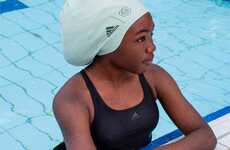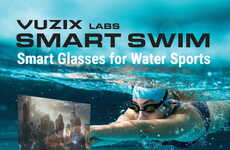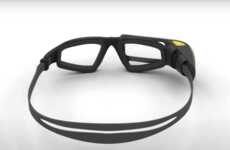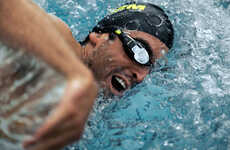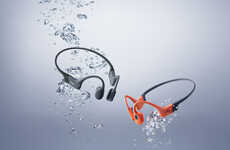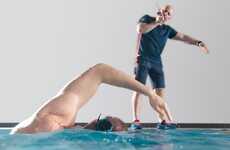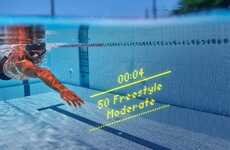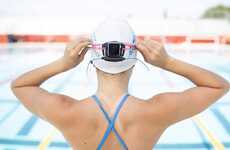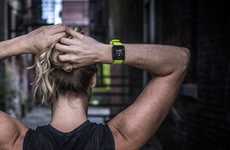
Samsung 'Blind Cap' Uses Vibrations to Connect Blind Swimmers and Coaches
Laura McQuarrie — May 17, 2016 — Lifestyle
References: youtube & digitalbuzzblog
The future of swimming caps could be about more than just keeping hair dry and encouraging streamlined movements underwater. As an official sponsor of the Olympic Games, Samsung developed the 'Blind Cap' as a revolutionary tool for blind swimmers.
Ordinarily, blind swimmers only know that the end of a lane is coming up because there is a "tapper" who uses a long pole to tap on them and indicate that a turn must be made. Samsung's Blind Cap makes it possible for swimming coaches and competitive swimmers to communicate much more effectively.
The Blind Cap is the first swimming cap of its kind to be able to vibrate, which works as an indicator that the end of a lane is approaching. Vibrations are controlled by a coach outside of the pool, who is able to send a message to the smart swimming cap via Bluetooth technology and an app.
Ordinarily, blind swimmers only know that the end of a lane is coming up because there is a "tapper" who uses a long pole to tap on them and indicate that a turn must be made. Samsung's Blind Cap makes it possible for swimming coaches and competitive swimmers to communicate much more effectively.
The Blind Cap is the first swimming cap of its kind to be able to vibrate, which works as an indicator that the end of a lane is approaching. Vibrations are controlled by a coach outside of the pool, who is able to send a message to the smart swimming cap via Bluetooth technology and an app.
Trend Themes
1. Accessible Wearables - Developing wearable technology that makes athletic activities more accessible for people with disabilities.
2. Smart Sports Equipment - Integrating technology in sports equipment to improve training and performance for athletes.
3. Remote Coaching - Using technology to enable coaches to monitor and train athletes remotely.
Industry Implications
1. Wearable Technology - Manufacturing devices and sensors designed to be worn on the body to monitor and enhance athletic performance.
2. Sports Equipment - Developing smart devices and equipment that provide real-time feedback to athletes during training and competition.
3. Athletic Coaching - Providing remote coaching services to athletes using technology and digital platforms.
3.2
Score
Popularity
Activity
Freshness

